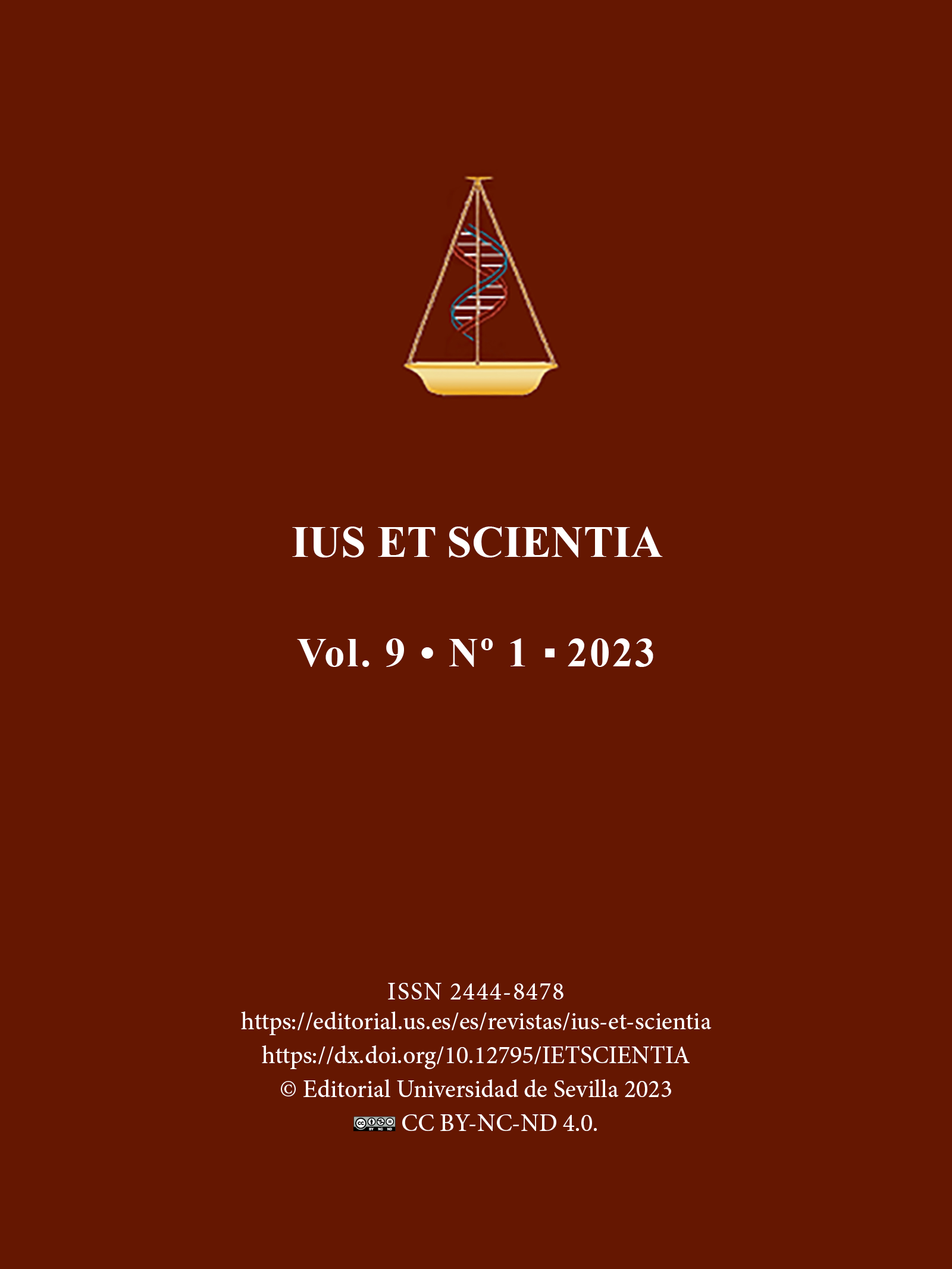European Union legal framework on data protection and citizens’ guarantees towards electronic public Administration
DOI:
https://doi.org/10.12795/IESTSCIENTIA.2023.i01.03Keywords:
Data protection, Public Administration, European UnionAbstract
This study addresses, in an analytical key both European legality and the jurisprudence of the Court of Justice, the application potentialities that the EU legal provisions have on data protection in what affects the relations between public administrations and the citizens. Such regulations are demanding when it comes to establishing the obligations that are incumbent on those who process or deposit personal data, and it is acceptable that public entities should, first of all, set an example of good management. Rich and complex matter, not yet widely addressed, is matter of such a suggestive case-law.
Downloads
References
ANDRIEU, E. (2000) Internet et la protection des données personnelles, Legicom 2000, núm. 21-22. Recuperado el 22 de diciembre de 2022 de https://www.cairn.info/revue-legicom-2000-1-page-155.htm
BRUNET E. (2016), Règlement général sur la protection des données à caractère personnel – Genèse de la réforme et présentation globale, Récueil Dalloz París. pp. 567 y sigs.
BRUNET, E. (2019), Les mécanismes de coopération des autorités de contrôle au sein de l’Union européenne et le Comité européen de la protection des données, Revue de Droit International d’Assas 2019, núm 2, pp. 117- 128. Recuperado el 22 de diciembre de 2022 de https://www.u-paris2. fr/sites/default/files/document/cv_publications/rdia_ndeg2_2019.pdf
CASTETS-RENARD, C. (2016) Invalidation du Safe Harbor par la CJUE: tempête sur la protection des données personnelles aux États-Unis, Recueil Dalloz. Paris, pp. 88 y sigs.
GAMBARDELLA, S. (2017) La protection des données sensibles à l’ère du numérique: regard sur le droit de l’Union Européenne, en KARLSSON-TALEB A., DE DAVID BEAUREGARD-BERTHIER O. Protection des données personnelles et sécurité nationale: quelles garanties juridiques dans l’utilisation du numérique, 1ère édition, Bruylant, Bruselas, pp. 56-134.
GUADAMUZ A. (2000), Habeas Data vs. the European Data Protection Directive, The Journal of Information, Law and Technology, Conventry, Reino Unido, Recuperado el 22 de diciembre de 2022 de https://warwick.ac.uk/fac/soc/law/elj/jilt/2000_2/guadamuz/
PÉRONNE G. y DAOUD, E. (2017) L’adresse IP est bien une donnée à caractère personnel, Recueil Dalloz Paris, pp. 120 y sigs.
PEYROU, S. (2015) La protection des données à caractère personnel: un droit désormais constitutionnalisé et garanti par la CJUE, en La protection des droits fondamentaux dans l’Union européenne, dir. R. Tinière et C. Vial, Bruylant, Bruselas.
TAMBOU, O. (2020) Manuel de droit européen de la protection des données à caractère personnel, Bruylant, Bruselas.
URIA GAVILAN, E. (2016) Derechos fundamentales versus vigilancia masiva Comentario a la sentencia del Tribunal de Justicia (Gran Sala) de 6 de octubre de 2015 en el asunto C-362/14 Schrems, Revista Electrónica de Estudios Internacionales (REEI), Madrid pp. 261-282, Recuperado el 22 de diciembre de 2022 de https://www.cepc.gob.es/sites/default/files/2021-12/37636elisauriagavilanrdce53.pdf
Documentos
La protection des données à caractère personnel dans l’Union européenne: le rôle des autorités nationales chargées de la protection des données Renforcement de l’architecture des droits fondamentaux au sein de l’UE, Edición de 2012. Recuperado el 22 de diciembre de 2022 de https://fra.europa.eu/sites/default/files/tk3109265frc_fr_web.pdf
Manual de legislación europea en materia de protección de datos, Edición de 2018. Recuperado el 22 de diciembre de 2022 de https://fra.europa.eu/sites/default/files/fra_uploads/fra-coe-edps-2018-handbook-data-protection_es.pdf.
Published
How to Cite
Issue
Section
License
Copyright (c) 2023 Enrique Manuel Puerta Domínguez

This work is licensed under a Creative Commons Attribution-NonCommercial-ShareAlike 4.0 International License.
Those authors being published in this journal agree to the following terms:
- Authors retain their copyright and they will guarantee to the journal the right of first publication of their work, which will be simultaneously subject to license recognition by Creative Commons that allows others to share such work provided it is stated the author’s name and his first publishing in IUS ET SCIENTIA.
- Authors may take other non-exclusive distribution license agreements version of the published work (e.g. deposit in an institutional digital file or publish it in a monographic volume) provided it is stated the initial publication in this journal.
- It is allowed and encouraged that Author s disseminate their work via the Internet (e. g. institutional digital files or on their website) prior to and during the submission process, which can lead to interesting exchanges and to increase citation of the published work.
- Abstract 112
- PDF (Español (España)) 218
- HTML (Español (España)) 56





